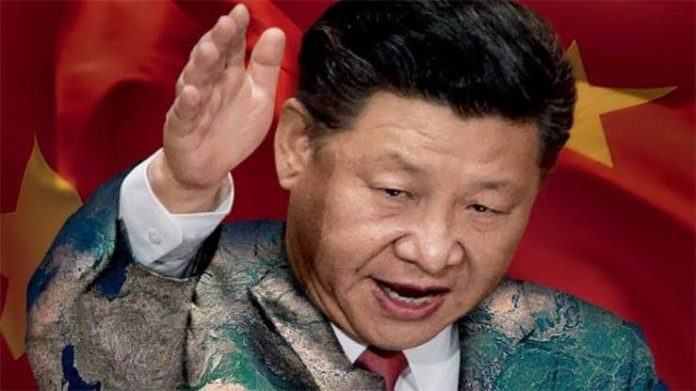Iran and China have reached an encouraging agreement that has grabbed world’s focus. This strategic and trade agreement between the two countries will be valid for the next 25 years. However, just days after the deal, news broke on Tuesday that Iran had separated India from the Chabahar rail project.
Tehran has cited delays in receiving funding from India as the reason. Four years ago, Iran and India agreed to lay a railway line from Chabahar to Zahedan on the Afghan border. Now Iran has decided to complete the project on its own and has begun work on it.
According to the New York Times, under the $400 billion deal, Iran will supply crude oil to China at very low prices for the next 25 years, in return for which China will invest heavily in Iran. The two countries have quietly signed the agreement at a time when the world is facing the epidemic of Covid-19.
As Iran struck the deal with China in defiance of US sanctions and threats, its far-reaching effects are expected. Experts believe that this agreement will have an impact not only on the United States but also on the entire world, including India. According to Iran’s Tasnim news agency, Article 6 of the agreement states that the two countries will increase cooperation in the fields of energy, infrastructure, industry and technology.
Iran’s parliament has not yet ratified the agreement, nor has it been made public, but the New York Times has obtained an 18-page document on the proposed deal. The documents are dated June 2020 and have been dubbed the “final blueprint” for the agreement. “The two ancient Asian cultures are two allies with similar views in the fields of trade, politics, culture and security. Many countries with common bilateral and multilateral interests, China and Iran, consider each other as their strategic allies,” the agreement said.
According to the documents, the agreement looks something like this:
· China will invest 280 billion in Iran’s oil and gas industry.
· The Chinese side will also invest $120 billion in developing production and transportation infrastructure in Iran.
· Iran will regularly supply crude oil and gas to China at very affordable prices for the next 25 years.
· China will help develop 5G technology infrastructure in Iran.
· China will increase its participation in large-scale banking, telecommunications, ports, railways and dozens of other Iranian projects.
· The two countries will conduct joint military exercises and research under mutual cooperation.
· China and Iran will build weapons together and share intelligence with each other.
Talmud Ahmed, an expert on the Middle East and India’s ambassador to the Gulf, believes the agreement is important in many ways for both China and Iran. He believes China is becoming an ally of Iran, which is strongly opposed by powerful countries such as the United States, Israel and Saudi Arabia. Ahmed believes the way in which the Trump administration imposed “maximum pressure” on Iran by imposing tough sanctions will significantly weaken the deal.
Foreign investment in Iran has almost stopped due to US sanctions. In such a scenario, foreign investment, technology and development in Iran could gain momentum because of China. On the other hand, China, the largest importer of crude oil, will get oil and gas from Iran at very cheap rates.
In addition, China’s position on defense is very strong. So China can help Iran either through defense products or through strategic capabilities. On the other hand, Iran is important to China because it can help make its ‘One Belt One Road’ project a success.
Experts believe that the agreement between China and Iran could be a setback for India as well. Due to US sanctions, India has almost stopped importing oil from Iran, which until a few years ago was a major supplier of oil to India.
In addition, India will face the loss of Chinese investment in Iran. India wants to develop the Chabahar port in Iran and is believed to be the answer to the Gawadar port in Pakistan. Chabahar is also important for India in terms of trade and strategy. In such a scenario, China’s presence would create difficulties for Indian investment. Because of this agreement, the situation for India could be similar to that of the United States, Israel and Saudi Arabia vs. Iran. And how difficult will it be for India?
In response to this question, Talmiz Ahmed says: ‘since independence, India’s foreign policy has been one of’ strategic sovereignty ‘. That is, India did not join any particular country or camp, did not come under their pressure and tried to maintain friendly relations with all countries according to its interests. But India’s policy seems to have weakened over the past few years. There is an impression in India’s neighbors that India is under American influence somewhere.
According to Talmud Ahmed, India’s interests are in Iran, Russia and China. India’s interests are in Euro-Asia. He says India should make it clear that a war between the United States and Russia cannot be its war.
Iran and China’s resentment against the United States is nothing new. The Institute for Trade Studies and Research, an organization affiliated with Iran’s ministry, said in a 2012 article that it was natural for China and Iran to be allies because both were unhappy with US and Western domination.
This resentment of both countries is before the world today in the form of this agreement. The Iranian Foreign Ministry says China is the world’s most powerful economy and Iran is one of the largest powers in West Asia. Together, these two forces will end the pressure of the ‘superpowers’ (the United States).
Rakesh Bhatt, an expert on Iranian affairs and a senior journalist, believes that China and Iran will indeed be a challenge for Americans. He told the BBC: “Iran has the second largest natural gas reserves after Russia. In terms of crude oil, Iran is second only to Saudi Arabia. With this agreement, China wants to challenge Saudi Arabia’s monopoly and offer Iran as an alternative.
Talmiz Ahmed also agrees with Rakesh Bhatt’s views. He said: “I think this agreement is very important strategically and it will bring about a fundamental change in the Gulf region. With Iran and China, a new ‘power player’ has emerged in the region. East Asia is still dominated by the United States, but Russia has also reached here to some extent in the last few years. This is the first time China has taken such a step here.
“The aggressive approach taken by the United States against China through measures such as the trade war has forced China to sign this agreement with Iran, and now both countries stand firmly before the United States,” says Talmud Ahmed. Experts believe that after this agreement, the attitude of Western countries towards Iran and the United States may soften.
According to a report by BBC Monitoring, the people of Iran are not happy with this agreement. On social media, people are expressing all sorts of doubts about the agreement.Users on Iranian social media have used the hashtag #IranNotforSale #IrannotforRent, meaning Iran is not for sale or for rent, as it has been called the beginning of ‘Chinese colonialism’.
Rakesh Bhatt says the Iranian people are also worried about the deal because of China’s previous record. Chinese investment has plunged countries like Kenya in Africa and Sri Lanka in Asia into debt. In such a situation, people fear that the fate of Iran will be the same.








